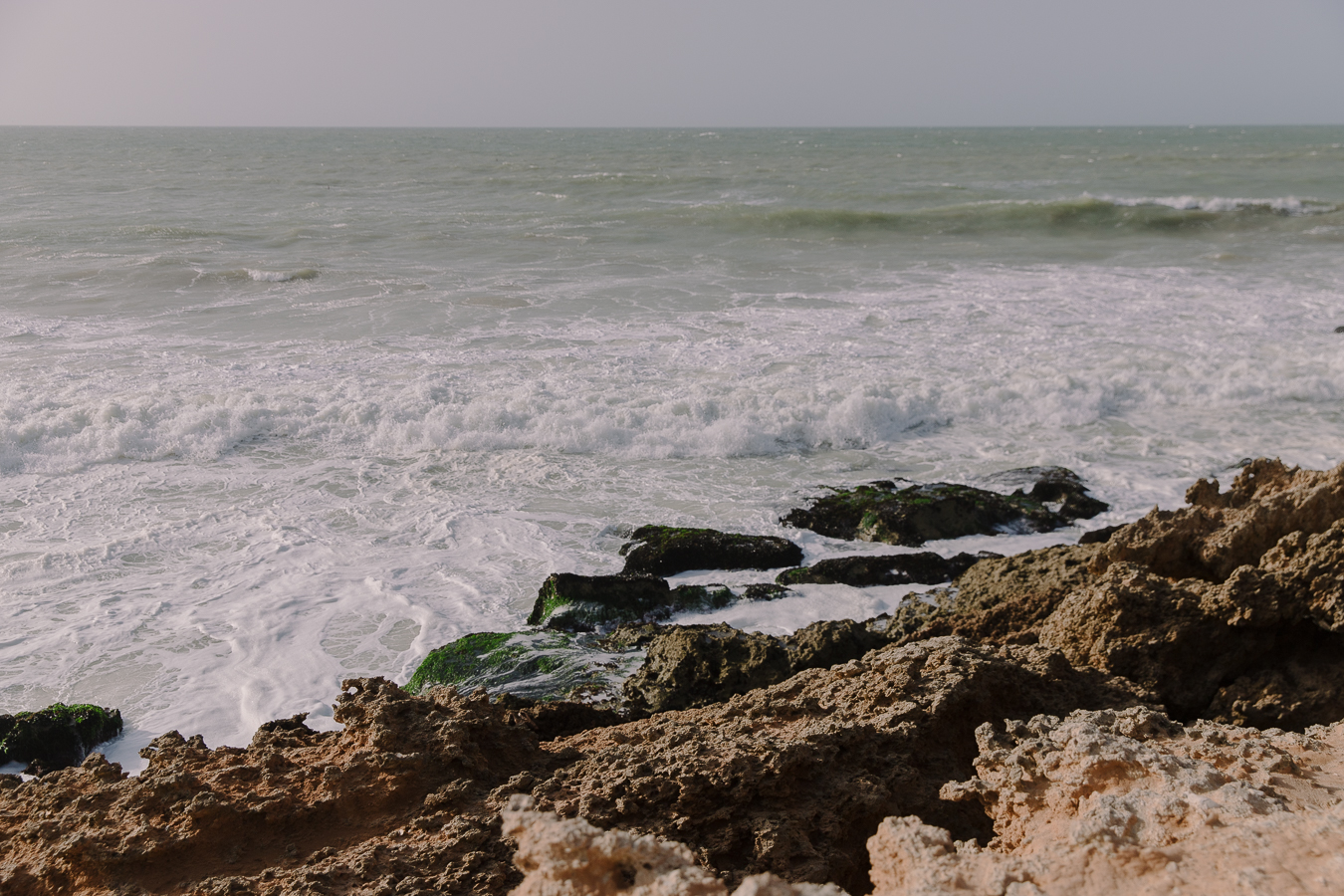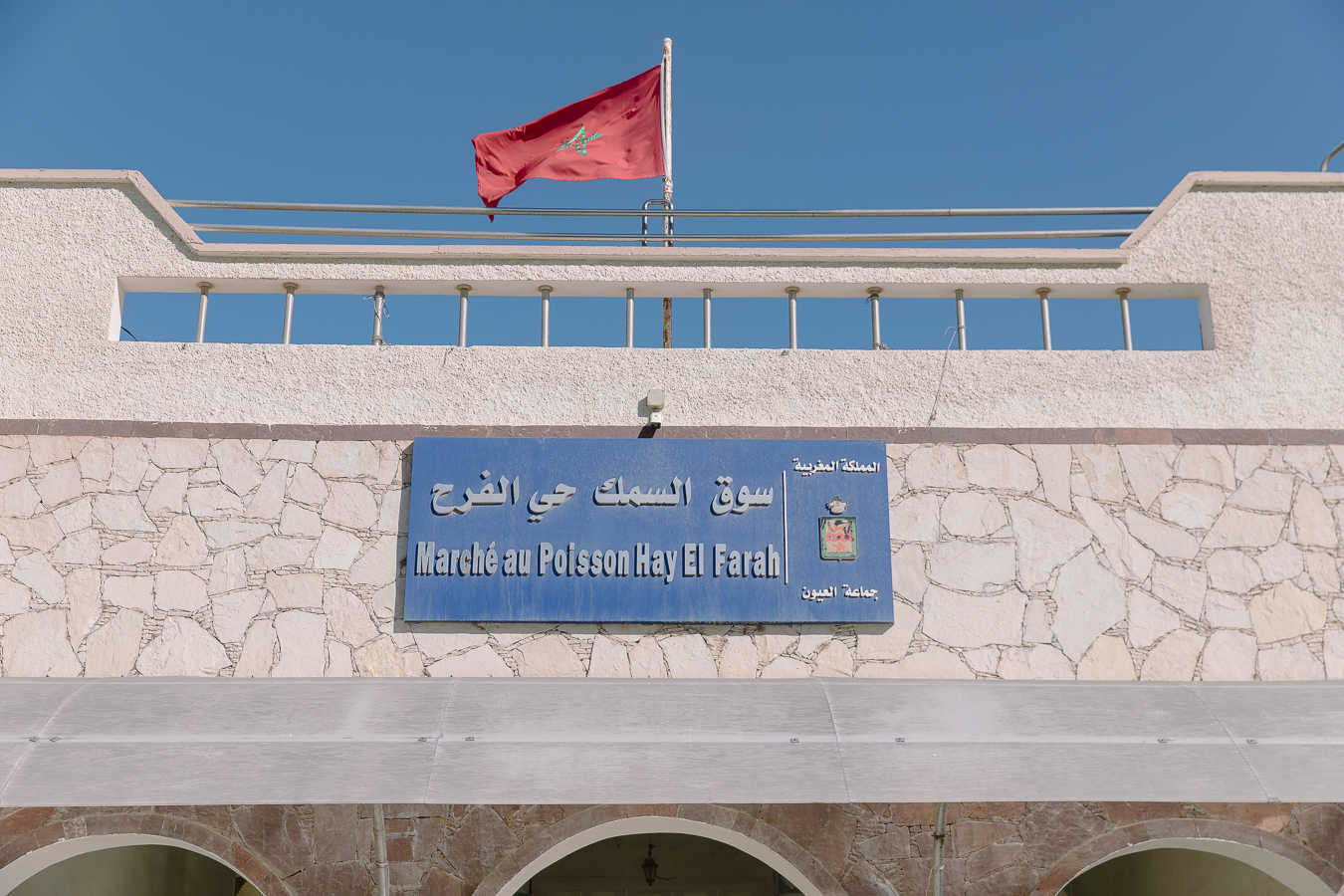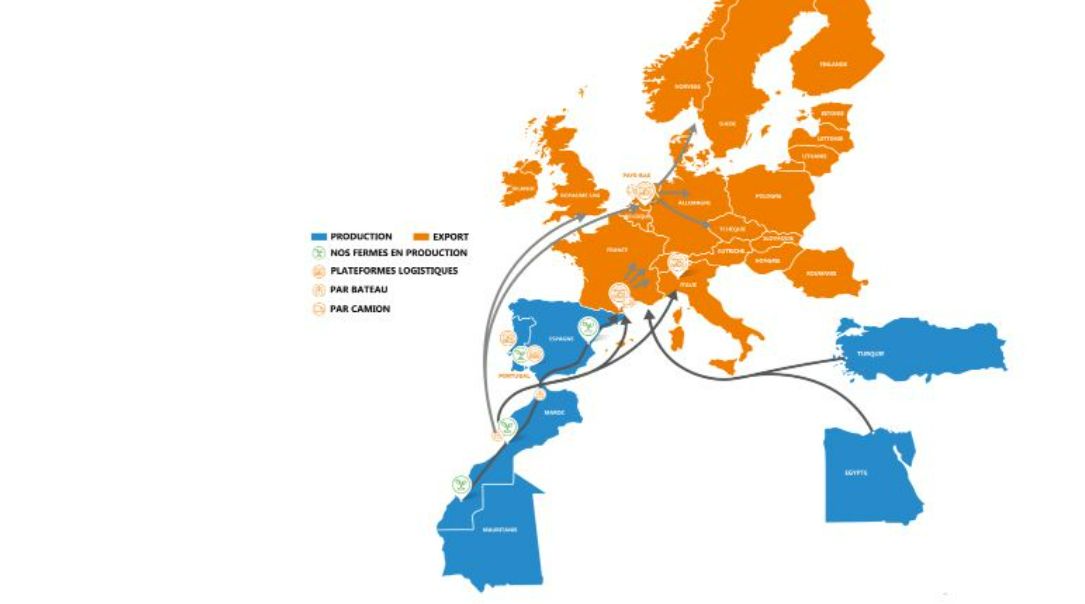
French agri-supplier Sofruce deleted false territorial claims and certificate references after scrutiny.
Earlier this week, Western Sahara Resource Watch (WSRW) reported that the French distributor Anima Group, through its subsidiary Sofruce, is selling cherry tomatoes with a highly problematic origin labelling.
Sofruce markets cherry tomatoes from occupied Western Sahara as originating from “Dakhla-Oued Eddahab” - a Moroccan administrative region created by Rabat on occupied land after its 1975 annexation. The shop shelf displayed the Sofruce products as from “Morocco”, despite the tomatoes being sourced from farms inside Western Sahara, not Morocco.
The European Commission’s approach to agricultural trade from the occupied territory is highly controversial. Its attempts to craft alternative labelling practices that align EU regulations with Morocco’s unfounded occupation has created confusion among EU retailers. Even though the EU’s new labelling scheme has not yet been implemented, Anima Group has already amended its labelling practices accordingly, and as a result it is not in alignment with the current EU standards which requires the products to be labelled according to their country of origin ”Western Sahara”.
If European companies wish to continue supporting the Moroccan illegal occupation of Western Sahara through sourcing from Moroccan agricultural industry in the territory - and ignoring the Saharawi people’s right to self-determination - they face a dilemma:
If they comply with the Commission’s suggested standards, giving the products a Moroccan regional name, they risk acting against the CJEU’s jurisprudence, ruling that products have to be labeled as from “Western Sahara” as the territory is “separate and distinct” from Morocco. If they follow the CJEU’s rulings, referring to the territory as from “Western Sahara”, they may breach the Commission’s legally questionable marketing rules.
In either case, the suggested standards of labelling Moroccan administrative regions has not yet taken effect. In other words, Sofruce is today not acting in line with correct labelling requirements.
In the meantime, Anima has at least tidied up its website. On 12 November, WSRW wrote to Anima Group with questions about its sourcing practices. The letter has not been responded to.
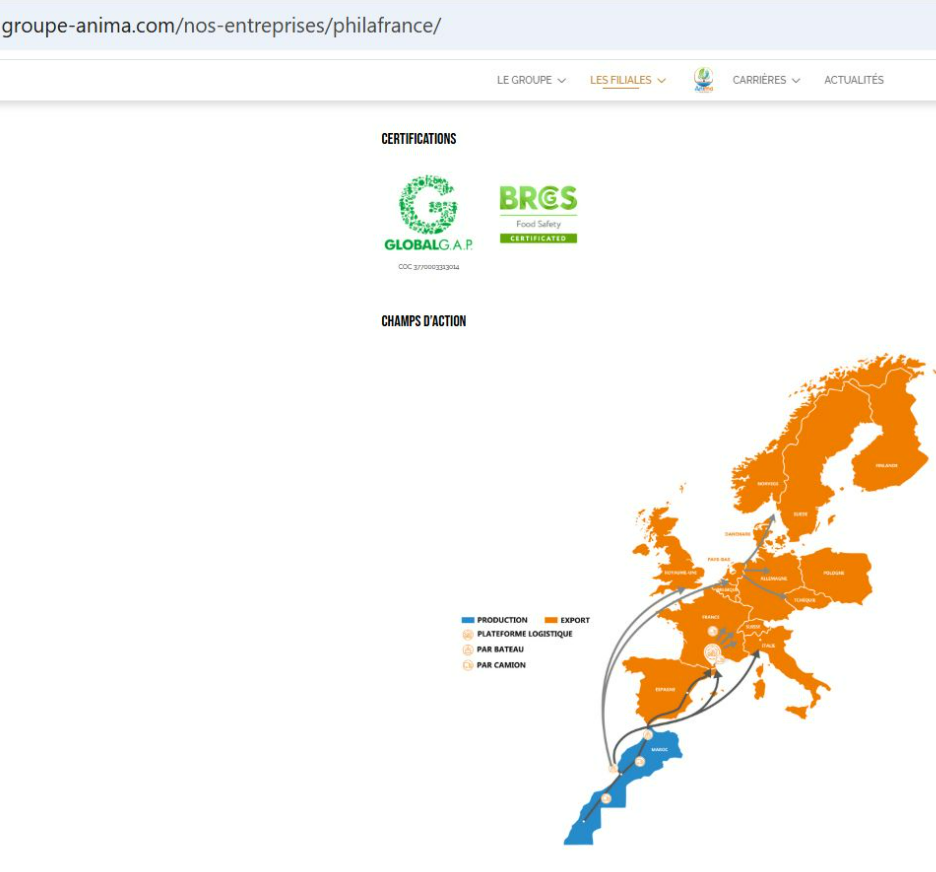
However, within 48 hours, Anima Group had altered its website:
* All maps depicting Western Sahara as part of Morocco were removed.
* All graphics showing product locations inside the occupied territory, and how the goods are transported from Western Sahara to the EU market via ships and trucks through Agadir and Tangier, were deleted.
* Changes in text segments were made, changing “Dakhla, in Morocco” into merely “Dakhla”. Or “Dakhla (Maroc)” into “Dakhla”.
Screenshots from 10 November show the now removed graphic design: Philafrance here and here, Saint Charles here and here, Sofruce here, Festival here.
The errors on the GLOBALG.A.P. certificates and database have not yet been corrected, suggesting that the certified producers are in Morocco.
WSRW also inquired about Anima Group’s references to the BRCGS food safety standard. Anima Group had three places on its website referred to as being BRCGS certified. WSRW had not been able to locate Anima’s suppliers or subsidiaries in the BRCGS registry of certified entities. Immediately after receiving WSRW’s letters, Anima removed references to BRCGS from articles relating to its subsidiaries of Saint Charles Primeur and Philafrance. The BRCGS logo is still found in one place on the company’s website , but it has not been possible to verify this in the BRCGS directory.
According to its website, Anima Group handles 128,000 tonnes of fresh fruits and vegetables annually, moving through 25,000 square meters of warehouse space and generating a turnover of €205 million.
Sofruce published on LinkedIn (or download) in 2023 information about its trading from BD Trading in “Dakhla Morocco”.
UPDATE, 24.11.2025: This is what the website of Anima's subsidiary Sofruce looks like as of 24 November 2025: "Nos Fermes" (pdf and pic), “Notre Expertise” (pdf and pic)
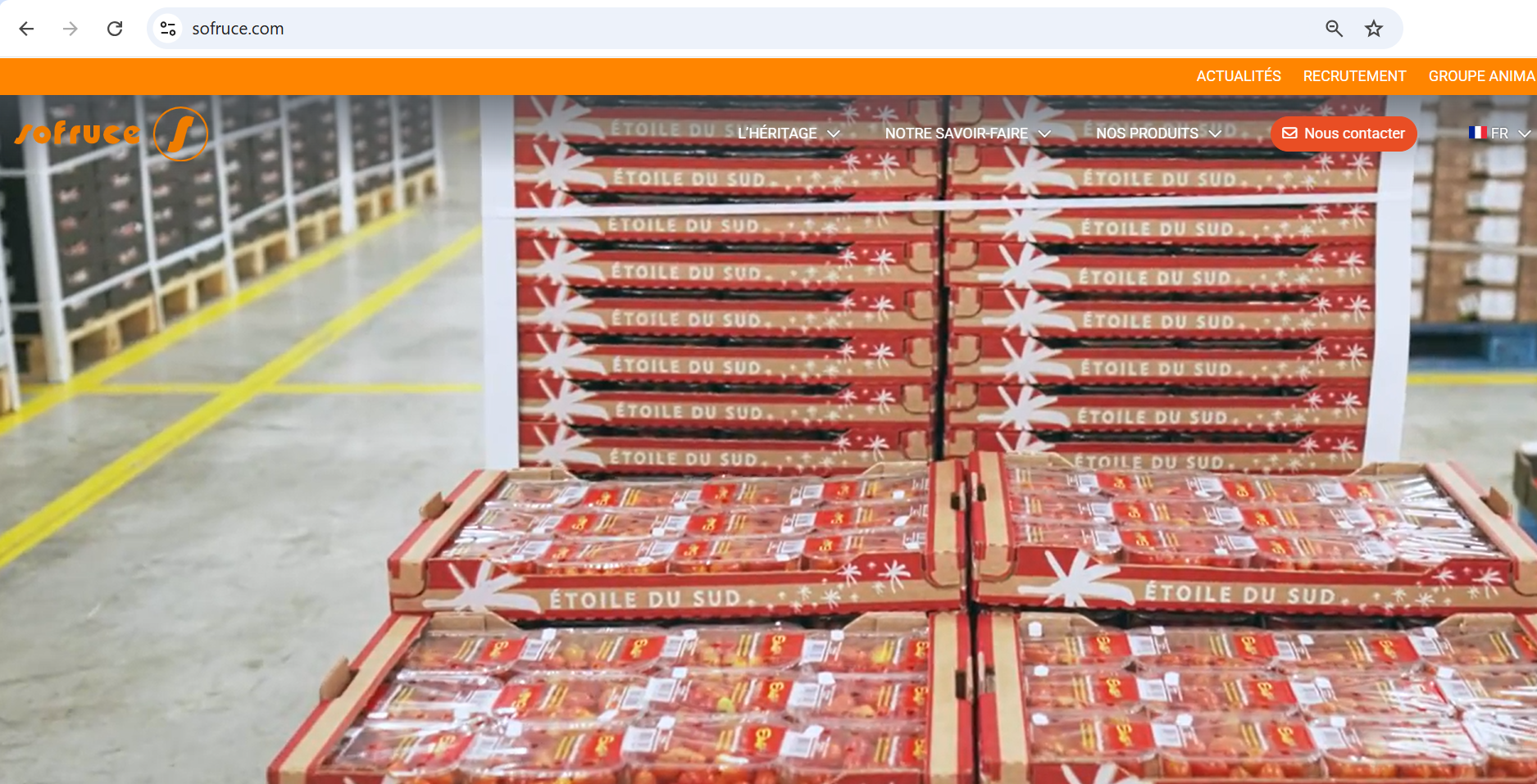
Since you're here....
WSRW’s work is being read and used more than ever. We work totally independently and to a large extent voluntarily. Our work takes time, dedication and diligence. But we do it because we believe it matters – and we hope you do too. We look for more monthly donors to support our work. If you'd like to contribute to our work – 3€, 5€, 8€ monthly… what you can spare – the future of WSRW would be much more secure. You can set up a monthly donation to WSRW quickly here.
New report: Certified occupation
International certification standards embellish Morocco’s controversial trade with fisheries and agricultural products in occupied Western Sahara, new report documents.
ASC withdraws from occupied Western Sahara
Certification scheme ends involvement with Azura Group and declares that no future certifications will be granted to companies in the occupied territory.
Certification giant SGS points fingers elsewhere
SGS blames everyone else for mistakes on MarinTrust certificates it had issued to Moroccan companies in occupied Western Sahara.
GMP+ does not check if “sustainable” fish is legally caught
The world’s largest certification scheme for “safe and sustainable animal feed” does not check whether its certified fish feed companies source from illegal fisheries in occupied Western Sahara, where catches violate the Saharawi people’s right to self-determination.

